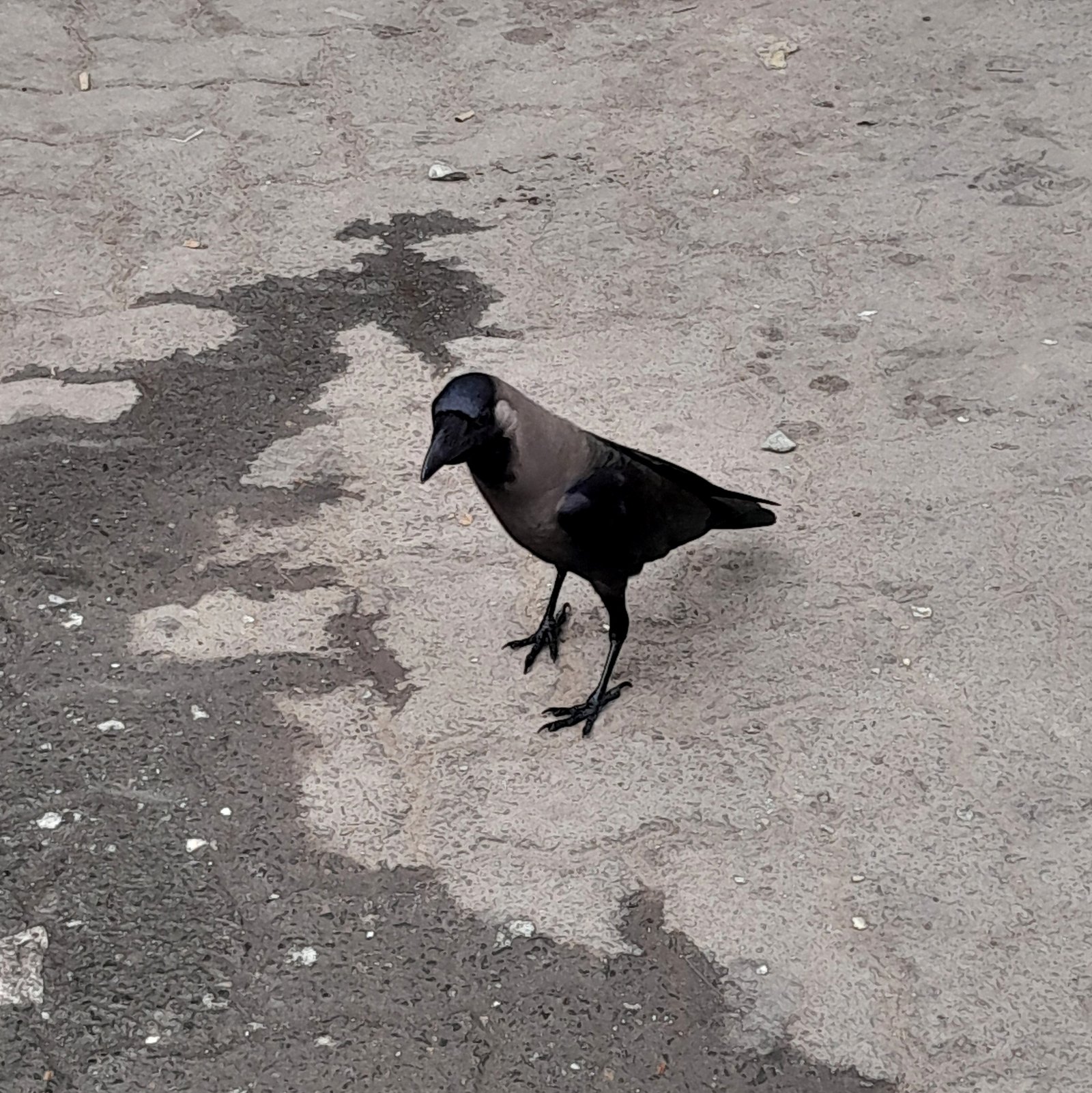
Crow
(NOD 43)
Rāmānanda Rāya continued, “Those who are devoid of all transcendental mellows are like the crows that suck the juice from the bitter fruits of the nimba tree of knowledge, whereas those who enjoy mellows are like the cuckoos who eat the buds of the mango tree of love of Godhead.”
(CC Madhya 8.258)
This person born from King Vena’s thighs was named Bāhuka, and his complexion was as black as a crow’s. All the limbs of his body were very short, his arms and legs were short, and his jaws were large. His nose was flat, his eyes were reddish, and his hair copper-colored.
(SB 4.14.44)
Due to envy, many asuras describe Kṛṣṇa to be like a black crow or an incarnation of a hair. Śrī Caitanya Mahāprabhu told Sanātana Gosvāmī how to counteract all these asuric explanations of Kṛṣṇa. The word kāka means crow, and keśa means hair. The asuras describe Kṛṣṇa as an incarnation of a crow, an incarnation of a śūdra (a blackish tribe) and an incarnation of a hair, not knowing that the word keśa means ka-īśa and that ka means Lord Brahmā and īśa means Lord. Thus Kṛṣṇa is the Lord of Lord Brahmā.
(CC Madhya 23.117-118 purport)
“Birds of the same feather flocks together.” You see? That is natural. The pigeons will flock together and the crows will flock together. The swans will flock together. The swans will never go to the crow or the crow will never go to the swan. In human society also, the same natural tendency is there. Of course, now we are becoming more liberal. Otherwise, formerly, the white people will not mix with black people. So this is not new; it is by nature. Everyone has got a particular type of society, environment.
So literatures also, there are different kinds of literature. For the crowlike men there are different kinds of literature, and for the swanlike men there are different kinds of literature
(700115 – Lecture SB 06.01.19 – Los Angeles)
The crows will enjoy a filthy place where all refuses are thrown. I don’t think in your country there is many crows. In India, you’ve seen, all nasty place, that is visited by the crows. It is stated in Śrīmad-Bhāgavatam, na tad vacaś citra-padaṁ harer yaśo pragṛṇīta karhicit, tad vāyasaṁ tīrtham (SB 1.5.10). The literature which does not describe Kṛṣṇa, that is the place for the crows. There is sex literature, they’re enjoyed by the crows, and this Bhāgavatam is enjoyed by the swans. That is the difference. Crows’ literature and swans’ literature, paramahaṁsa. Paramo nirmatsarāṇāṁ vāstavaṁ vastu vedyam atra (SB 1.1.2).
(750519 – Morning Walk – Melbourne)
In great stupidity he soon stood before Kṛṣṇa, telling Him repeatedly, “Stop for a minute and fight with me!” After saying this he drew his bow and directly shot three forceful arrows against Kṛṣṇa’s body. Then he condemned Kṛṣṇa as the most abominable descendant of the Yadu dynasty and asked Him to stand before him for a minute so that he could teach Him a good lesson. “You are carrying away my sister just like a crow stealing clarified butter meant for use in a sacrifice. You are simply proud of Your military strength, but You cannot fight according to regulative principles. You have stolen my sister; now I shall relieve You of Your false prestige. You can keep my sister under Your possession only as long as I do not pinion You to the ground for good with my arrows.” Lord Kṛṣṇa, after hearing all these crazy words from Rukmī, immediately shot an arrow and severed the string of Rukmī’s bow, making him unable to use another arrow.
(KB 53)
Śrī Yāmunācārya praises Kṛṣṇa’s power of forgiveness with the following statement: “My dear Lord Rāmacandra, You are so merciful to have excused the crow’s clawing on the nipples of Jānakī simply because of his bowing down before You.” Once Indra, the King of heaven, assumed the form of a crow and attacked Sītā (Jānakī), Lord Rāmacandra’s wife, by striking her on the breast. This was certainly an insult to the universal mother, Sītā, and Lord Rāmacandra was immediately prepared to kill the crow. But because later on the crow bowed down before the Lord, He excused his offense. Śrī Yāmunācārya further says in his prayer that the forgiving power of Lord Kṛṣṇa is even greater than that of Lord Rāmacandra, because Śiśupāla was always in the habit of insulting Kṛṣṇa—not only in one lifetime, but continually throughout three lives.
(NOD 21)
“But for Śrī Caitanya Mahāprabhu,” Sārvabhauma Bhaṭṭācārya continued, “who is so merciful? He has converted a crow into a Garuḍa. Who could be so merciful?
(CC Madhya 12.182)
A person is considered no better than a crow if after receiving some food, he does not divide it among guests, old men and children, but simply eats it himself, or if he eats it without performing the five kinds of sacrifice. After death he is put into the most abominable hell, known as Kṛmibhojana. In that hell is a lake 100,000 yojanas [800,000 miles] wide and filled with worms. He becomes a worm in that lake and feeds on the other worms there, who also feed on him. Unless he atones for his actions before his death, such a sinful man remains in the hellish lake of Kṛmibhojana for as many years as there are yojanas in the width of the lake.
(SB 5.26.18)
